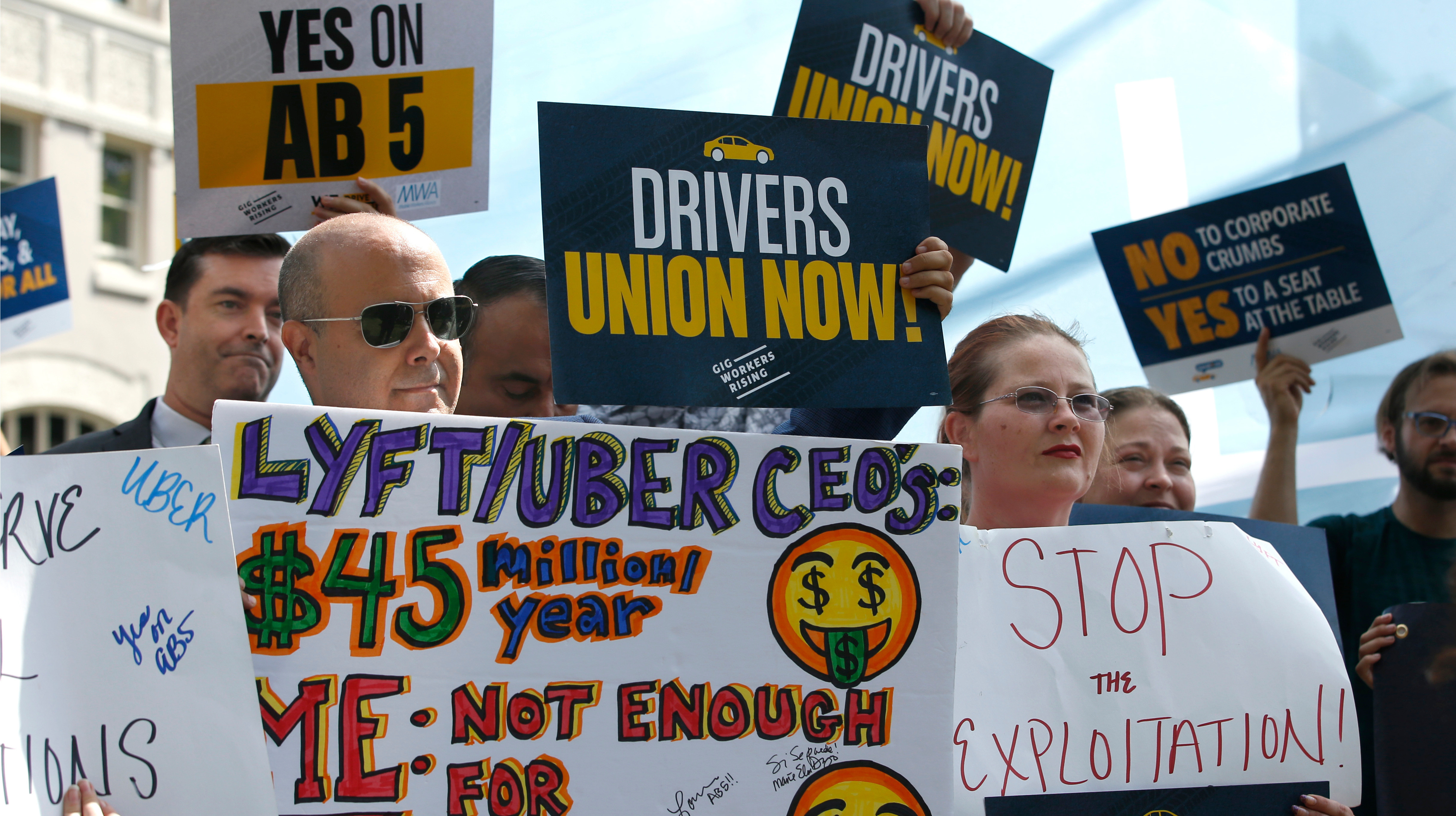Uber To California: Make Us
AB5, the California bill that would codify a state Supreme Court ruling putting in place a strict test for whether a worker classifies as an independent contractor and has potentially profound implications on the ridehail industry, is awaiting Governor Gavin Newsom's signature to become law. But that is unlikely to change much for Uber and Lyft drivers when the law goes into effect on January 1, 2020, as it appears at least one of these companies will gear up for a legal fight instead.
Tony West, Uber's chief legal officer, told reporters in a conference call today that the company has no plans to reclassify drivers as employees should Newsom sign AB5 as expected. Uber maintains that drivers would still be classified as independent contractors even under AB5's stricter test because "drivers' work is outside the usual course of Uber's business, which is serving as a technology platform" for different marketplaces.
Same thing we've seen before: we're a technology company, not a transportation company.
"The law does not say that drivers are employees," West maintained. "What the law does is it changes the legal test to make the determination whether or not a driver is an employee or an independent contractor."
And West says Uber's position continues to be that drivers will still fall on the independent contractor side of that test. "We believe, given all the facts and circumstances...we believe we can make the harder test, we can pass the harder test to the satisfaction of arbitrators and courts who hear the issue."
In other words, Uber has no plans to change their designation of drivers any time soon.
To be fair, Uber has good reason to believe they won't have to, at least not for a very long time. To understand why, look to Massachusetts.
AB5 is a bill based on the Dynamex California Supreme Court decision, which adopted the so-called "ABC Test," which itself is based off a Massachusetts law that has been on the books for Uber and Lyft's entire existence. Yet, Uber and Lyft drivers are independent contractors in Massachusetts just like everywhere else.
The reason for this, according to Gavriela Bogin-Farber of the Massachusetts-based labor law firm Messing, Rudavsky & Weliky, P.C., is because the law simply establishes the test courts have to apply when worker statuses are challenged in court. It is not, as she put it, "self-executing." Workers have to sue and judges have to rule on the issue for that specific company before any change has to take place.
And the courts are still working this out. Earlier this year, Uber settled a worker classification lawsuit filed all the way back in 2013 involving drivers from Massachusetts and California for $20 million. No judge ruled on the issue of whether drivers are employees or independent contractors.
There is one wrinkle to AB5 that could potentially speed things up. Under a last-minute amendment to AB5, city attorneys were granted the power to sue companies for worker misclassification. This would not only allow lawsuits to happen faster, but also circumvent the question of whether the issue ought to be settled in forced arbitration.
In any event, West made clear during Wednesday's conference call Uber will continue to classify drivers as independent contractors while also pursuing a ballot measure to let voters decide.
West likened AB5 to a "harder test" that Uber must pass, but one he believes they will. "A harder test does not predetermine an outcome," West added. That will be up for the courts to decide.
And until such case law is established, Bogin-Farber said, "Uber can continue to classify workers as they want."
